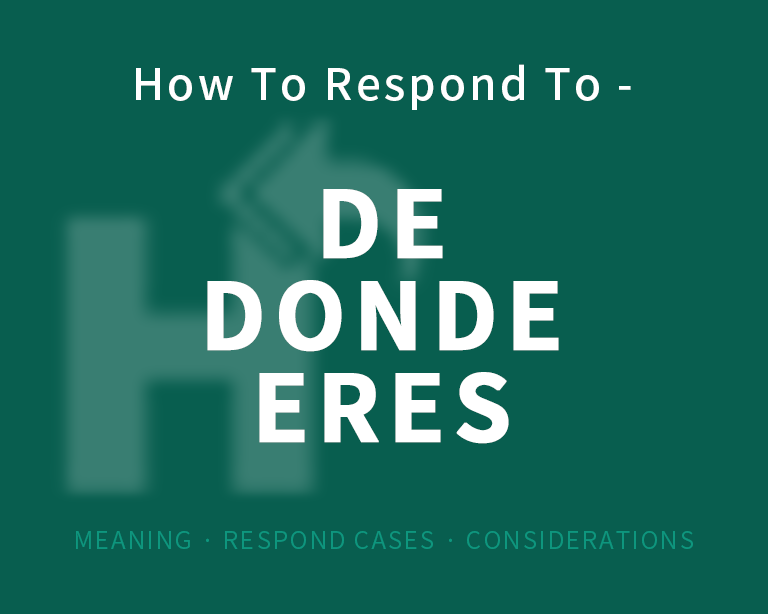The best way to respond to "¿De dónde eres?" in Spanish

What does "¿De dónde eres?" mean?
The phrase "¿De dónde eres?" means "Where are you from?" in Spanish. It is a common way for Spanish speakers to ask about someone's place of origin or nationality. For example:
- A new acquaintance at a party may ask you "¿De dónde eres?" to find out your cultural background.
- A colleague may ask "¿De dónde eres?" if they are uncertain about your nationality or mother tongue.
- Someone you just met may use it as an opening to continue the conversation, to get to know you better.
The best 3 ways to respond to "¿De dónde eres?"
- State your country of origin. For example, "Soy de Estados Unidos" (I'm from the United States) or "Soy de Italia" (I'm from Italy).
- Name your hometown or region. For example, "Soy de Nueva York" (I'm from New York) or "Soy de Andalucía en el sur de España" (I'm from Andalusia in southern Spain).
- Explain your cultural heritage. For example, "Mis padres son de México, pero yo nací en California" (My parents are from Mexico, but I was born in California).
What to consider when responding to "¿De dónde eres?"
Some things to consider:
- Provide as much detail as you're comfortable with. You don't need to share more personal information than you want to.
- Highlight connections between your place of origin and the Spanish-speaking person. For example, mention a shared language or popular culture.
- Express interest in the other person's background as well. For example, ask "¿Y tú?" (And you?) to inquire about where they are from.
- Discuss how your cultural origin has shaped you. For example, you can say how it has impacted your values, experiences, or perspectives on life.
- Share something unique or interesting about your place of origin. For example, mention a famous landmark, historical event, or cultural tradition.
Specific examples of responding to "¿De dónde eres?"
Case 1: You were born in the U.S. but have Mexican heritage. You can say: "Mis padres son mexicanos. Yo nací en Los Ángeles pero me siento orgulloso de mis raíces." (My parents are Mexican. I was born in LA but I feel proud of my roots).
Case 2: You are from Madrid, Spain. You can say: "Soy madrileño, de Madrid en el centro de España." (I'm from Madrid, in central Spain).
Case 3: You are Italian but were raised in Argentina. You can say: "Tengo origenes italianos pero crecí en Buenos Aires. Me siento mitad italiano y mitad argentino." (I have Italian origins but grew up in Buenos Aires. I feel half Italian and half Argentinian).
Summary
In summary, be prepared to respond thoughtfully when asked "¿De dónde eres?". Share details about your origins and cultural background as you feel comfortable. Highlight connections with the Spanish speaker and express interest in their own background. Discuss how your origins have shaped you and share interesting details about where you're from. Responding authentically and with confidence is the best way to have an engaging conversation. Your cultural roots are an important part of who you are, so embrace the opportunity to discuss them!